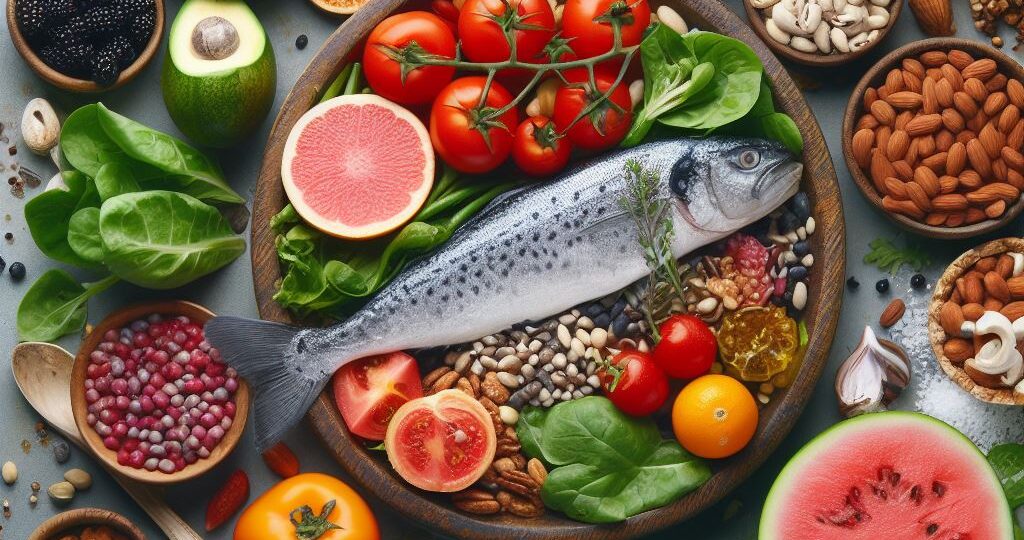Introduction
Erectile dysfunction (ED) is a common concern for many men, affecting their quality of life and self-esteem. While there are various treatment options available, including medications and therapy, your diet can also play a crucial role in managing and preventing this condition. In this article, we will explore the types of foods you should include and avoid to promote erectile function. By making informed dietary choices, you can potentially enhance your sexual health naturally.
The Role of Diet in Erectile Dysfunction
The saying “you are what you eat” holds true when it comes to erectile dysfunction. A healthy, balanced diet can positively impact blood flow, hormone regulation, and overall cardiovascular health. These factors are all interconnected and have a significant influence on your ability to achieve and maintain an erection.

Key Foods to Incorporate for Erectile Health
1. Leafy Greens: Dark, leafy greens like spinach, kale, and Swiss chard are packed with nitrates. Nitrates help relax blood vessels and improve blood flow, a vital aspect of achieving and maintaining an erection.
2. Berries: Berries such as blueberries, strawberries, and raspberries are rich in antioxidants. These antioxidants help protect blood vessels, reducing the risk of oxidative stress, which can negatively affect erectile function.
3. Fatty Fish: Salmon, mackerel, and trout are excellent sources of omega-3 fatty acids. These healthy fats improve circulation, reduce inflammation, and support overall cardiovascular health, enhancing your chances of preventing or managing ED.
4. Nuts: Almonds, walnuts, and pistachios are high in L-arginine, an amino acid that boosts nitric oxide production, leading to improved blood flow and relaxed blood vessels.
5. Whole Grains: Choose whole grains like oatmeal, quinoa, and brown rice over refined grains. These complex carbohydrates help maintain stable blood sugar levels and contribute to better overall heart health.
6.Beans and Legumes: Kidney beans, black beans, and lentils are packed with fiber and protein, helping control blood sugar levels and maintain a healthy weight, both of which are important for erectile function.
7. Watermelon: This refreshing fruit contains an amino acid called citrulline, which can have a similar effect to Viagra in relaxing blood vessels and improving blood flow to the genital area.
8. Tomatoes: Tomatoes are high in lycopene, an antioxidant that can enhance blood vessel function and reduce the risk of ED.

Foods to Limit or Avoid
1. Processed Foods: High in trans fats and unhealthy saturated fats, processed foods like fast food, chips, and sugary snacks can negatively impact blood circulation and overall cardiovascular health.
2. Excessive Alcohol: While moderate alcohol consumption may have some cardiovascular benefits, excessive drinking can lead to ED. It can reduce your ability to achieve and maintain an erection due to its depressant effects on the central nervous system.
3. High-Sugar Diet: Diets rich in sugary foods and beverages can lead to obesity, diabetes, and heart disease, all of which are risk factors for erectile dysfunction.
4. High-Sodium Diet: Excessive salt intake can raise blood pressure, narrow blood vessels, and reduce blood flow, which is detrimental to erectile function.
5. Excessive Alcohol: Limit your consumption of red and processed meats, as they contain saturated fats that can clog arteries and reduce blood flow.
6. Dairy Products: High-fat dairy products like whole milk and cheese can contribute to high cholesterol levels, which can hinder blood flow and exacerbate ED.
7. Caffeine: While moderate caffeine intake is generally safe, excessive caffeine consumption can lead to anxiety and nervousness, potentially interfering with sexual performance.
Transitioning to a Diet for Erectile Health
Now that you are familiar with the foods to include and avoid for better erectile function, it’s important to understand how to make these dietary changes effectively. Here are some tips for transitioning to a diet that promotes sexual health:
1. Gradual Changes: Rather than making drastic dietary shifts, start by gradually incorporating the recommended foods into your meals while reducing your intake of the problematic ones.
2.Meal Planning: Plan your meals in advance to ensure you have access to healthy ingredients and can avoid unhealthy temptations.
3. Balanced Diet: Strive for a balanced diet that includes a variety of foods from all food groups. This will help you obtain a broad spectrum of nutrients essential for overall health, including sexual health.
4.Consult a Dietitian: If you’re unsure how to structure your diet for erectile health, consider consulting a registered dietitian or nutritionist for personalized guidance.
5.Stay Hydrated: Adequate water intake is vital for overall health and circulation. Ensure you are staying well-hydrated.
6. Exercise regularly: Physical activity is another crucial factor in maintaining erectile health. A combination of a balanced diet and regular exercise can significantly improve your cardiovascular health and, subsequently, your sexual function.
Conclusion
Erectile dysfunction can be a distressing condition, but it’s important to remember that diet plays a key role in its prevention and management. By incorporating the recommended foods and avoiding those that can harm your erectile function, you can make a meaningful impact on your sexual health. However, always consult with a healthcare professional for personalized advice and consider other lifestyle changes, such as exercise and stress management, to support your overall well-being.
Incorporating these dietary changes, along with other positive lifestyle choices, can help you take control of your sexual health and enjoy a fulfilling and satisfying life. For more information on dietary guidelines and sexual health, you can refer to the official website of the U.S. Department of Health and Human Services (HHS) at HHS Erectile Dysfunction and Diet.
RELATED POSTS
View all




